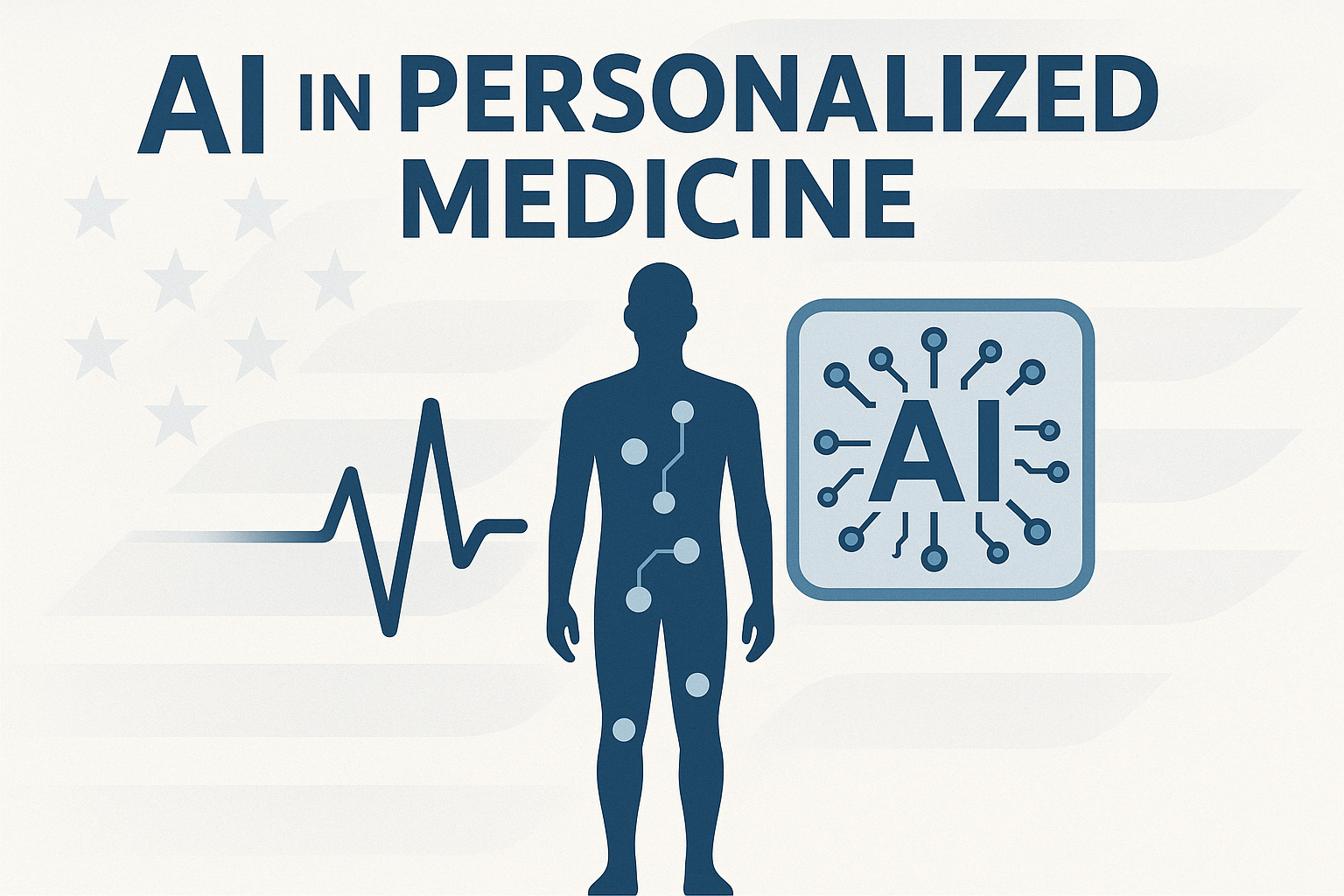
AI in Personalized Medicine: Transforming Healthcare in 2025
Artificial Intelligence (AI) is revolutionizing the healthcare landscape, and nowhere is its impact more profound than in personalized medicine. As we move into 2025, AI in personalized medicine is enabling tailored treatments, predictive diagnostics, and improved patient outcomes across the United States. This comprehensive guide explores how AI is shaping personalized medicine, the latest advancements, top applications, and what the future holds for this dynamic intersection of technology and healthcare.
What Is AI in Personalized Medicine? Understanding the Basics
Personalized medicine, also known as precision medicine, refers to customizing healthcare—treatments, practices, and products—to the individual patient. AI in personalized medicine leverages machine learning, deep learning, and data analytics to analyze vast amounts of patient data, uncover patterns, and recommend individualized care strategies.
Key Components of AI-Driven Personalized Medicine
- Genomic Analysis 🧬: AI algorithms interpret genetic data to identify disease risks and optimal therapies.
- Predictive Analytics 📊: Machine learning models forecast disease progression and treatment responses.
- Clinical Decision Support 🏥: AI assists healthcare providers in making data-driven, patient-specific decisions.
- Digital Health Records Integration 💻: Seamless analysis of EHRs for holistic patient profiles.
TIP: AI-powered personalized medicine is not just about treatment—it’s about prevention, early detection, and ongoing management tailored to each patient.
Top 10 Applications of AI in Personalized Medicine (2025)
AI is driving innovation across multiple facets of personalized medicine. Here are the top 10 applications making a difference in U.S. healthcare today:
- Genomic Sequencing Interpretation
- Personalized Cancer Therapy Selection
- Drug Discovery and Development
- Predictive Risk Modeling for Chronic Diseases
- AI-Driven Radiology and Imaging Analysis
- Tailored Mental Health Interventions
- Remote Patient Monitoring and Wearables
- Pharmacogenomics (Drug-Gene Interaction)
- AI-Powered Virtual Health Assistants
- Automated Clinical Trial Matching
Side-by-Side Comparison Table
| Rank | Application | Key Benefit | Example Use Case |
|---|---|---|---|
| 1 | Genomic Sequencing Interpretation | Faster, more accurate analysis | Identifying hereditary cancers |
| 2 | Personalized Cancer Therapy Selection | Targeted treatments, better outcomes | Matching drugs to tumor genetics |
| 3 | Drug Discovery and Development | Accelerated timelines, lower costs | AI-designed molecules |
| 4 | Predictive Risk Modeling for Chronic Diseases | Early intervention, prevention | Diabetes risk prediction |
| 5 | AI-Driven Radiology and Imaging Analysis | Enhanced diagnostic accuracy | Detecting lung nodules |
| 6 | Tailored Mental Health Interventions | Customized therapy plans | AI-matched counseling |
| 7 | Remote Patient Monitoring and Wearables | Real-time health tracking | Heart rate monitoring |
| 8 | Pharmacogenomics (Drug-Gene Interaction) | Reduced adverse drug reactions | Personalized medication dosing |
| 9 | AI-Powered Virtual Health Assistants | 24/7 patient support | Symptom triage |
| 10 | Automated Clinical Trial Matching | Faster recruitment, inclusivity | Matching patients to studies |
How AI Improves Patient Outcomes in Personalized Medicine
AI’s ability to process and learn from massive datasets means more accurate diagnoses, earlier interventions, and therapies tailored to each patient’s unique biology and lifestyle.
Examples of Improved Outcomes
- Cancer Care: AI identifies mutations in tumors, enabling oncologists to select the most effective, least toxic therapies.
- Cardiology: Predictive models flag patients at high risk for heart disease, prompting preventive care.
- Diabetes Management: Wearable devices powered by AI adjust insulin dosing in real time based on continuous glucose monitoring.
TIP: Personalized medicine powered by AI reduces trial-and-error in treatment, minimizing side effects and improving quality of life.
Challenges and Ethical Considerations for AI in Personalized Medicine
While the benefits are substantial, integrating AI into personalized medicine presents challenges:
- Data Privacy and Security 🔒: Protecting sensitive genetic and health data is paramount.
- Bias and Fairness ⚖️: AI models must be trained on diverse datasets to avoid perpetuating health disparities.
- Regulatory Compliance 📜: Navigating FDA and HIPAA regulations for AI-driven tools.
- Clinical Adoption 🩺: Ensuring healthcare providers trust and effectively use AI recommendations.
TIP: Transparent AI models and robust data governance are essential for building trust in personalized medicine.
The Future of AI in Personalized Medicine: Trends for 2025 and Beyond
As AI technologies mature, expect even greater integration into personalized medicine:
- Multi-Omics Integration: AI will combine genomics, proteomics, metabolomics, and more for holistic patient insights.
- Real-Time Decision Support: Instant, AI-driven recommendations at the point of care.
- Patient Empowerment: AI tools will enable patients to take a more active role in managing their health.
- Expanded Access: Telemedicine and AI will bring personalized care to rural and underserved communities.
Conclusion: AI in Personalized Medicine Is Shaping the Future of U.S. Healthcare
AI in personalized medicine is not just a trend—it’s a transformative force in 2025, delivering tailored treatments, earlier diagnoses, and better patient outcomes across the United States. From genomic analysis to remote monitoring, AI is making healthcare more precise, proactive, and patient-centered. While challenges remain around data privacy, bias, and clinical adoption, the potential for AI to revolutionize personalized medicine is undeniable. As technology continues to advance, expect even more innovative applications that empower both providers and patients, ushering in a new era of healthcare that is truly personalized.